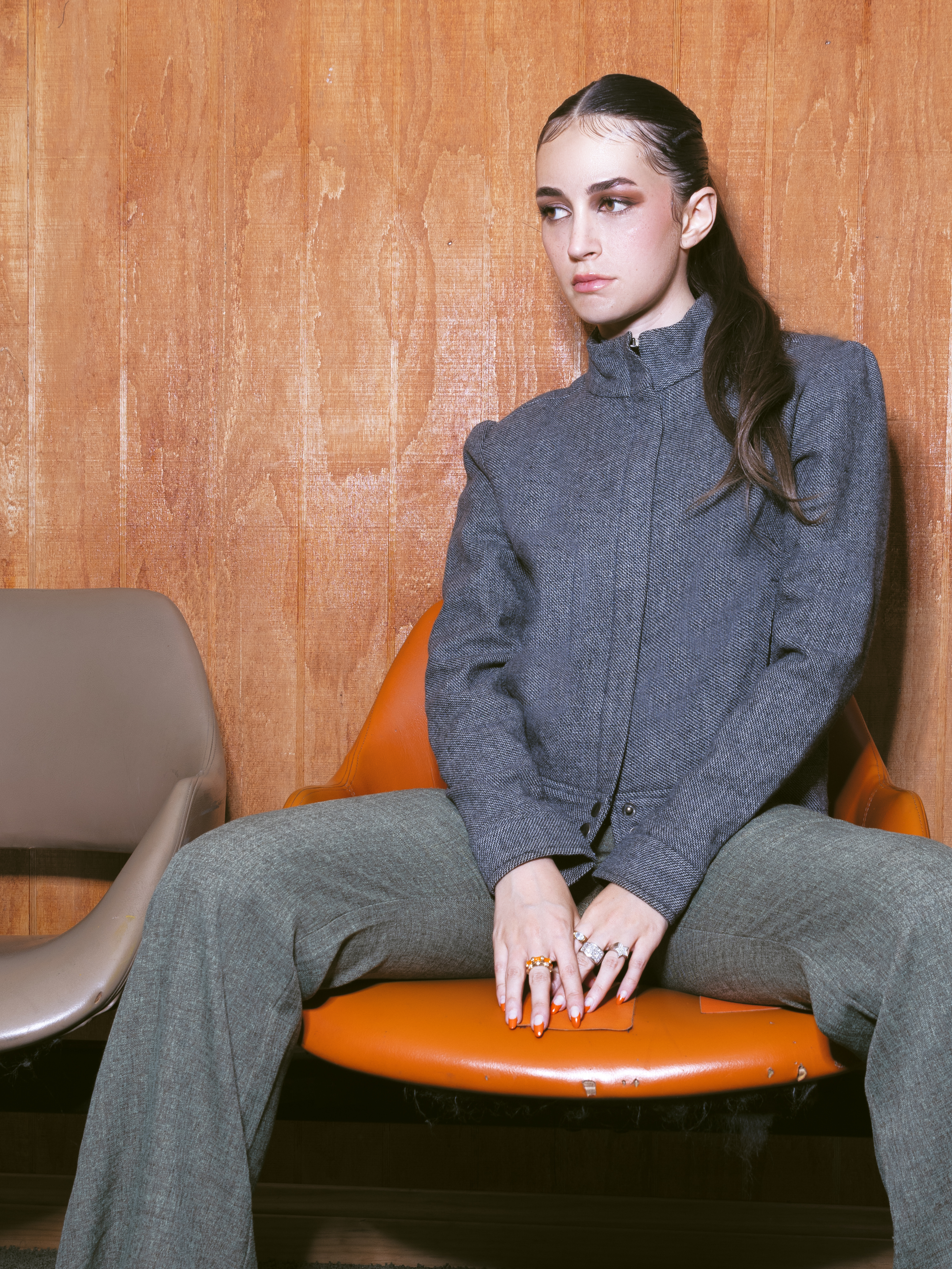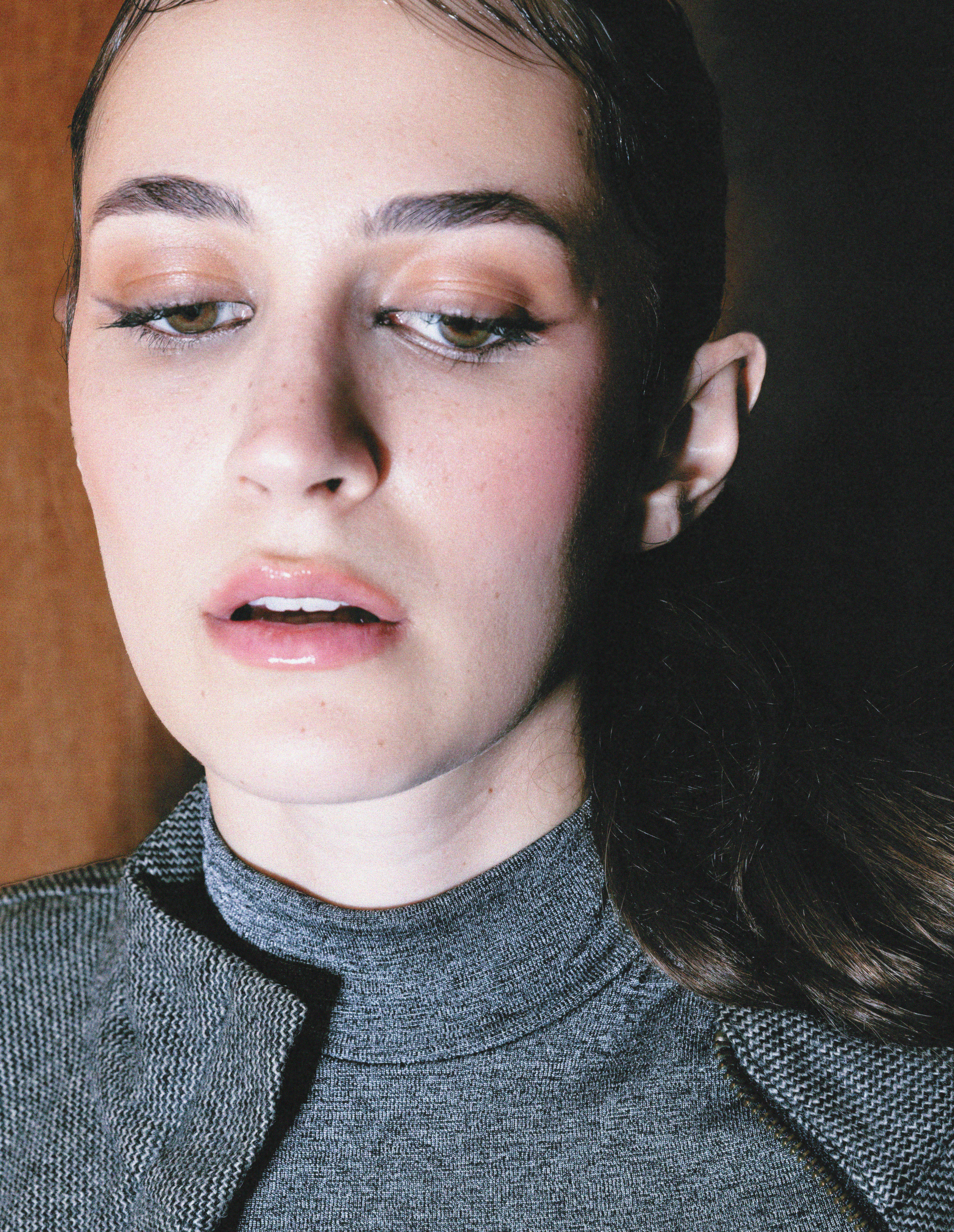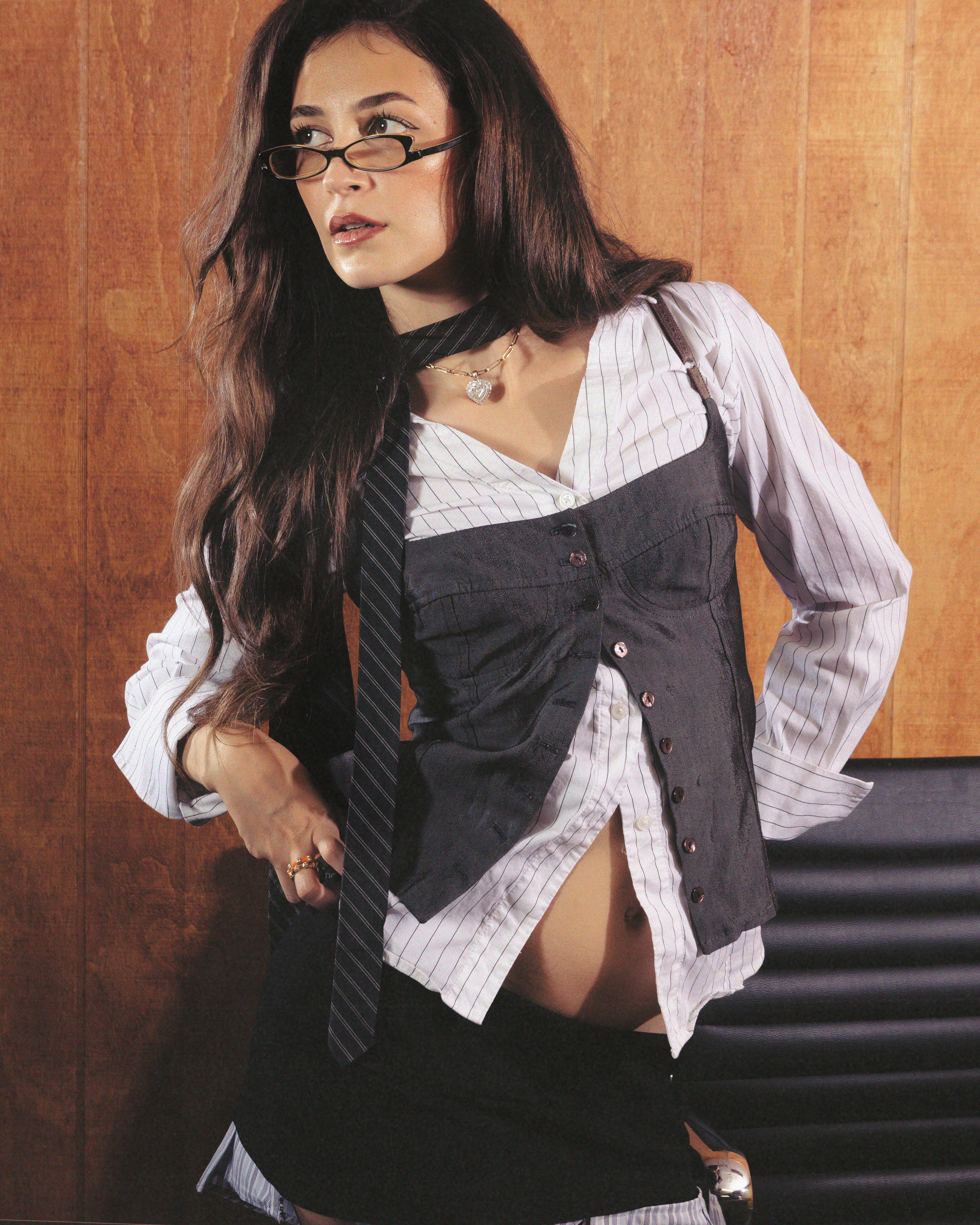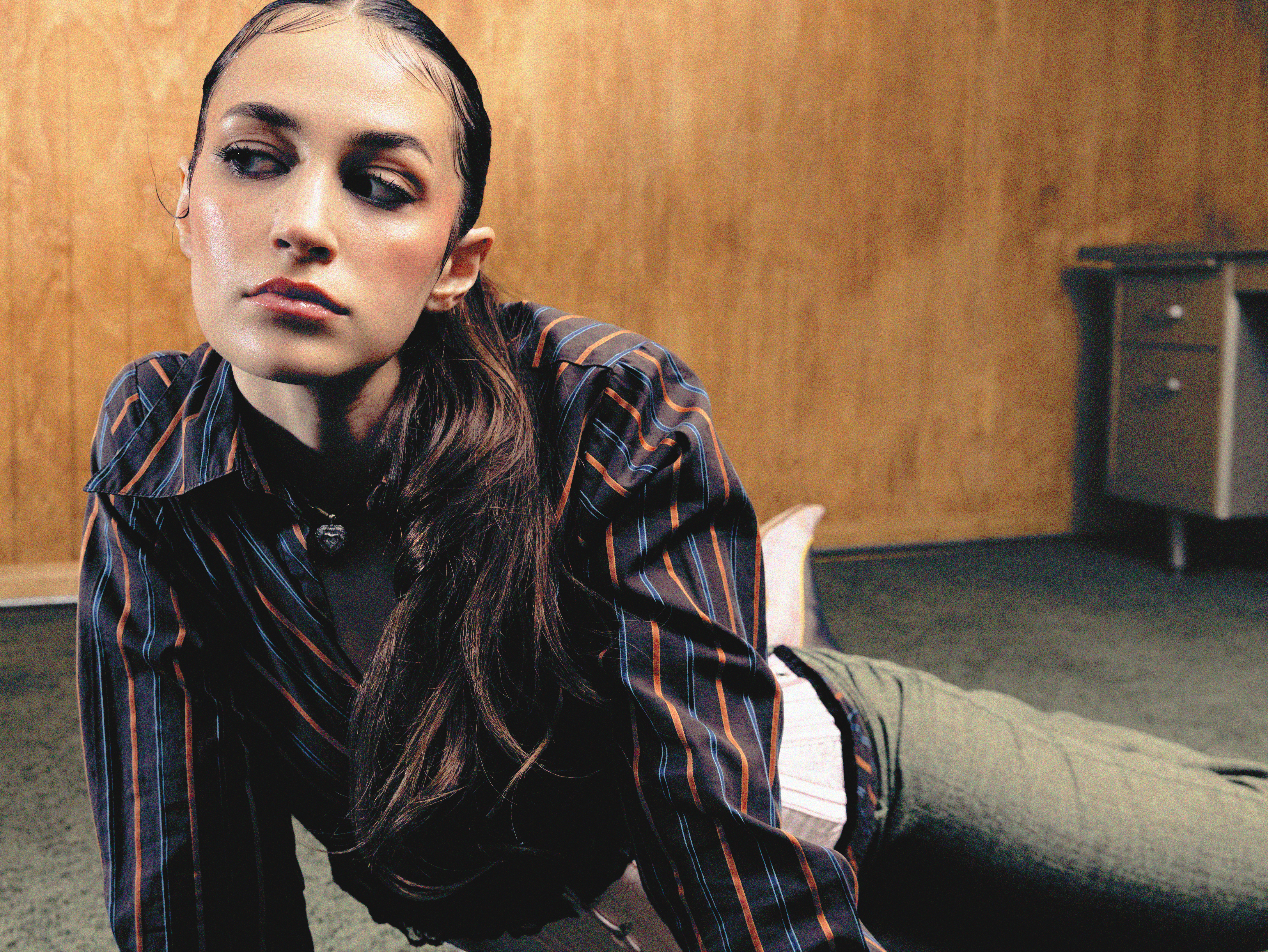“From a really young age, it was obvious that performing was just part of me. I was born a musician, born a singer—it never really felt like a choice, more like something that was always there.”
INJI

INJI seemingly stumbled into a music career, although her classical musical background might make that hard to believe. The multifaceted musician, who graduated from Wharton and had a short stint in consulting, creates dance music that’s simultaneously fun and introspective. She spoke to NYOTA about making music that reflects her identity, her experience joining the conservatory in Istanbul as a child, and her advice for aspiring musicians.
Growing up in Türkiye, what types of music were you surrounded by?
The answer might surprise you a little bit. I got accepted to the conservatory around age 7 in Istanbul, so I was surrounded by classical music. It took me six to seven years in the conservatory to completely fall in love with classical music (that’s when you start playing the good stuff). I remember the opera students walking the hallways, always warming up or humming something. I thought they were the coolest kids in the world; I’d dream of becoming them when I grew up. Other than that, my dad is a huge music fan and surrounded our house with music that my mom always resisted. Lots of Pink Floyd, lots of Turkish psychedelic rock, lots of really long (poorly executed) guitar solos. Unfortunately for my dad, I never quite caught that bug.
Your foray into being a professional musician was not planned, but you did have a passion for music before “Gaslight” went viral. Is there anything in particular that fueled your interest in music and performing?
From a really young age, it was obvious that performing was just part of me. I was born a musician, born a singer—it never really felt like a choice, more like something that was always there. My sister’s piano teacher noticed I had a musical ear and suggested I audition for the conservatory when I was 7—I got in, and that’s really where I grew up as a musician. My mom likes to remind me that even as a kid, I’d put on little performances at dinner parties, belly dancing before I could even read. After school, I’d spend hours singing karaoke just for fun. Looking back, I’m almost surprised no one encouraged me to think about music as a career.
It’s ironic because for some people, applying to a top school or trying to secure a job at a top company seems risky and even impossible. In your life, that wasn’t impossible, but having a career in music was. What were your initial reservations about pursuing music professionally?
I just thought it was impossible. I remember my mom pointing out incredibly talented singers performing at restaurants or YouTubers posting cover videos and saying, ‘Look, we aren’t even paying attention. And they’re an even better vocalist than you!’ Most of my friends at the conservatory were on the path to becoming concert pianists, but I wasn’t nearly as skilled or passionate as they were. At the same time, I was doing really well academically, so of course the focus shifted to how I could be one of the few students from Turkey to get into a top U.S. college. Music as a career never crossed my mind – it felt like a dream I wasn’t allowed to dream. Looking back now, it’s almost funny: my Common App essay was literally about choosing academics over what I thought was just a fever-dream music career.
Have you felt more authentically yourself since becoming a full-time musician?
It’s not as stark as that. It’s not a Cinderella story—I loved my studies, I loved college, I performed a lot and sang a lot there too. I definitely thank God every day that this is my job and not being in an office. I couldn’t have handled the consulting job I had signed up for (don’t tell my mom; also, don’t tell the company in case I need to go back one day). But it was crystal clear to me the day I did my first show as INJI that there was absolutely no going back (also don’t tell my mom that). I’m clearly put on this earth to do exactly this. It’s a wonderful feeling to know that.


Has your business degree been helpful to you as you’ve navigated the music industry?
Absolutely. I mean, I always dreamt of being an entrepreneur, and now I’m an entrepreneur—a solo one too. I’ve used every bit of my degree (well, except maybe the parts about how to price, sell, and buy mega-corporations). I would make Excel models of potential financial gains and compare them between label deals and stuff… I was a label’s nightmare. Honestly, maybe that part hurt more than it helped.
Although each of your songs sounds unique, they still manage to be distinctly INJI. What has been your process for finding your sound as an artist?
There was no process… the sound found me. I think I just got very lucky that the first few songs we made were created with no expectations of me ever putting them out. So they were truly me; they were ridiculous, they were funny, they were bold. Me making house music with raps on it was pure coincidence, but a very lucky one. What’s been more challenging has been managing to keep my sound as an artist. It’s very easy to shift over to the mainstream and be scared of taking risks, especially when I started making music out in L.A. That’s been a huge challenge – I spent months making music that was too afraid to truly reflect who I am.

You’ve been performing live at several festivals, from Outside Lands to Osheaga. When creating songs, do you ever consider how the music will resonate with a live audience?
That is the first thing I consider. I walk into a room and say I make this music for festival stages. Like I said, I came out of the womb a performer. This music has little meaning if it’s not meant to be on huge live stages. My music is entirely communal; it’s to be experienced in groups, in parties, in concerts. It’s made to be that way.
Live performance also allows room for experimentation. Have you gotten ideas for new tracks or new ways to produce your music while you’ve been on the road?
Yes and no. When I’m on the road, I don’t write at all. But the audience makes it clear what they want from me, and I love seeing that. After my first tour, I scrapped everything I’d been working on and started fresh – the crowd showed me they came to party and dance, so I set out to give them exactly that.


How creatively involved are you when it comes to the visuals for your music as well as your overall image as an artist?
Almost literally everything you see comes from me. I hope that changes, because I don’t think I do that great of a job. But I’ve co-directed every music video, I make all the visuals, I choose all the outfits, etc.
What advice do you have for aspiring musicians?
Put yourself out there early and all the time. If you’re not regularly getting rejected, you’re not trying hard enough. Accept that being bad—failing—all of that is just a part of the process. It really does take so long to get good. These are things I’ve been learning recently. And, at the risk of being cliché, just keep going.

Production Credits
Photographer: Exavier Castro
MUA: Cristal the Artist
Hair: Karina Luis Marcial
Stylist: Tal Heruty
Production + Set Design: Julian Hamilton
Assistant: Gilberto Ortiz
This story first ran in NYOTA’s Empowerment Issue. Read more from the Issue here and purchase a print copy here.



